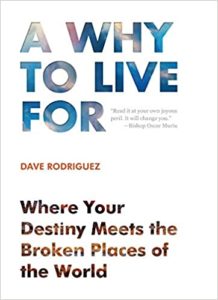Most of us – myself included – are regularly too worked up to get ahold of ourselves and settle down. We are both distracted and exhausted. We are unable to be at rest. This was the idea behind my newsletter and blog post of last week. At the end, I suggested we do a focus/rest inventory. Here, are the questions I raised.
How many uninterrupted minutes do you get in a day?
How much time can you focus on any one thing?
How many times do you touch your smartphone in 24 hours?
How many books have you read in the past 12 months?
How many hours per day do you face a screen?
How much sleep do you get, on average? Is it quality sleep?
Can you give undivided attention to the people who are important to you?
How much time do you have to dream and imagine possibilities?
Are you regularly at rest, at peace and attentive?
Do you want to be?
This week I want to explore the high cost of our inability to rest and focus. If your answers to the focus/rest inventory skew negative, then you won’t be surprised by what you’ll read below. But you might be alarmed as you see the price you are paying for your inability to pay attention and settle down. Next week I’ll delve more deeply into the causes of all this agitation, and the following week I’ll offer some solutions you may find helpful.
Side note – much of the material in these series of posts comes from the book Stolen Focus: Why You Can’t Pay Attention And How To Think Deeply Again by Johann Hari. Look at this newsletter as a book report or Cliffs Notes of Hari’s work – which is good for many of you who haven’t read a book in ages – see below.
I’m going to try to keep this simple and highlight what I believe to be the three most damaging costs of your inability to focus and rest.
- You can’t give attention to the things that matter.
Here are some of the ramifications. First, you find it hard to stay on task. Hari references a study by Gloria Mark, Professor of Informatics at the University of California, Irvine who observed how long, on average, an adult working in an office stays on one task. It was three minutes. Second, you spend more time on the “surface”. Depth takes time. Depth takes reflection. Depth takes commitment. Depth takes attention. If you have to keep up with everything and continue life at warp speed, you will not get below the surface of many things. Third, you think you are multitasking, but what you’re really doing is switching from one thing to another. Hari reports on research done on our compulsive switching (multi-tasking) and suggests that as a result “we are slower and we are stupider. We are less creative. We make more mistakes. And we experience diminished memory.” Yikes. Fourth, you are not learning anything new because you are not reading. Hari reports that “57% of Americans now do not read a single book in a typical year. The proportion of Americans who read books for pleasure is now at its lowest level ever recorded.”
- You can’t be present.
Let me paint a picture of a person who is not able to be present. Let’s say two people are sitting across from each other in a coffee shop. One of them struggles to stay focused on the person across the table.
The body language of the disengaged person clearly says, “I’m ready to go at any moment.” It’s like they have one foot out the door. Their eyes dart back and forth and rarely lock on the eyes of the person sitting with them. Their head swivels to see who just walked in and who’s leaving. They fidget and occasionally take a glance at their smartphone sitting close by. Their smart phone is sitting face up and is not muted. You can see their texts and hear the incoming alerts. They might even take a call or respond to a text message.
What you can’t see, but you surmise, is that they’re not listening to anything their companion is saying. You can assume that they are thinking ahead or reviewing what just happened prior to their arrival at the coffee shop. And you can be certain that they will not remember anything their friend told them.
I’m not gonna lie. Sadly, I see myself in this scenario. Unable, or unwilling, to be present and give my full self to the one in front of me. They were just one of the many balls I was juggling. I’m better about this now, but wow, how selfish I have been at times as I’ve struggled to focus on the person I’m with. I’ll bet you can relate to this too.
- You can’t sleep
“40% of Americans are chronically sleep deprived, getting less than the necessary minimum of seven hours a night. Since 1942, the average amount of time a person sleeps has been slashed by an hour a night. The amount of sleep we get has dropped by 20% in just 100 years.” Those stats revealed by Hari are alarming, but get a load of this. Roxanne Pritchard, Professor of Neuroscience and Psychology at the University of Minneapolis suggests, “If you stay awake for 18 hours – say if you woke up at 6:00 AM and went to sleep at midnight – by the end of the day your reactions are equivalent to if you had a .05% blood alcohol reading. If you stay up another three hours, you’ll be the equivalent of legally drunk.” Maybe this is why you wake up feeling “hung over” when you haven’t had anything to drink…you’re just not getting enough sleep.
Experts at the Cleveland Clinic reveal some of the most serious potential problems associated with chronic sleep deprivation are high blood pressure, diabetes, heart attack, heart failure or stroke. Other potential problems include obesity, depression, reduced immune system function and lower sex drive. Yes, this is a very big deal. But, of course, you know that.
Is it any wonder we are such a cranky bunch these days? Frantic, distracted, overly busy, digitally sabotaged and bleary eyed. Next week I’ll explore the sources of our inattention and agitation. But for now…go get some rest!




0 Comments